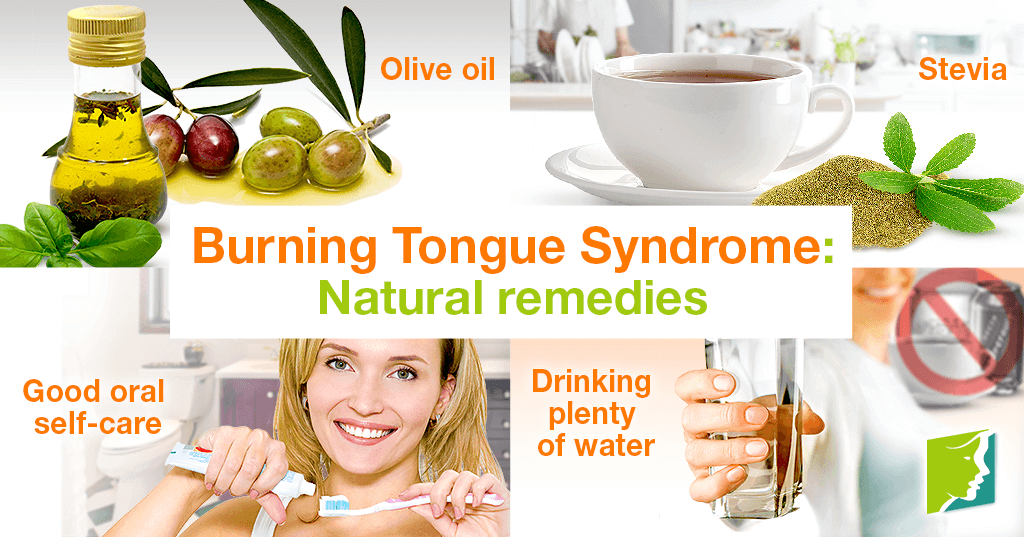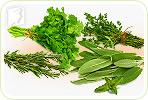A person can burn or scald their tongue at virtually any stage in their life. However, for many women experiencing hormonal imbalance during menopause, the feeling of sharp tingling or numbness is all too frequent and not necessarily related to a previous burn. Luckily, these sufferers are not altogether helpless. Read on to discover the best natural remedies for overcoming burning tongue syndrome.
Natural Remedies
Although an official cure has not been uncovered for burning tongue syndrome, natural treatments and remedies such as the following can help you to effectively manage your burning tongue symptoms.
Olive Oil
A remedy that involves applying olive oil to the tongue, take one spoon and leaving it there over night. Olive oil is actually a powerful antiseptic, its purpose is to desensitize the tongue and mouth from the burning sensations providing relief.
Stevia
Stevia is widely used as an addition to food than a remedy on its own, it has several potential health benefits, including reliving for burning tongue syndrome. Stevia is typically added to beverages - such as coffee and tea. Also, stevia contain vitamins A and C, zinc, rutin, magnesium, and iron that helps with burning tongue symptoms.
Good oral self-care
Safe oral hygiene serves as a good foundation for the treatment and prevention of tongue burning. A sound oral healthcare regimen means brushing and flossing at least twice daily, or removing all dentures at night and ensuring their daily, thorough cleaning. On the other hand, because it eliminates the natural presence of saliva, frequent mouth breathing should be avoided whenever possible. In the case of stuffy nasal passages and blocked sinuses, some antihistamines can offer relief.
Drinking plenty of water
Not only does drinking a cool glass of water provide instant relief from the discomfort of a burning tongue and many other symptoms, but staying hydrated offers plenty of other benefits as well. Plain water helps to restore normal levels of saliva in the mouth, providing a barrier of protection against the scalding sensation. Even some vegetables and succulent fruits can help contribute to the body's overall water reserve. On the other hand, burning tongue sufferers should be careful to avoid sipping too slowly and consuming alcohol or sugary, caffeinated beverages, which are known to increase thirst and mouth dryness.
Burning tongue cases vary from mildly uncomfortable to severely painful, depend on the case. It is a frustrating affliction to suffer through, affecting day-to-day interactions and disrupting activities you would normally enjoy. Now that you have an idea of the natural treatments available for burning tongue, keep reading to learn how to tell if your burning tongue could be indicative of a more serious health concern.
Sources
- American Academy of Family Physicians. (2010). Common Tongue Conditions in Primary Care. Retrieved November 16, 2016, from http://www.aafp.org/afp/2010/0301/p627.html#sec-3
- American Dental Association. (2005). Burning Mouth Syndrome. Retrieved November 16, 2016, from http://www.ada.org/~/media/ADA/Publications/Files/patient_53.pdf?la=en
- Health Direct Australia. (2015). Antihistamines. Retrieved November 16, 2016, from https://www.healthdirect.gov.au/antihistamines
- Lipkin, A. (2015). Tongue Problems. MedlinePlus. Retrieved November 15, 2016, from https://medlineplus.gov/ency/article/003047.htm
- National Institute of Dental and Craniofacial Research. (2016). Burning Mouth Syndrome. Retrieved November 16, 2016, from http://www.nidcr.nih.gov/oralhealth/Topics/Burning/BurningMouthSyndrome.htm
- State Government of Victoria, Australia - Department of Health & Human Services. (2015). Dry Mouth Syndrome. Retrieved November 16, 2016, from https://www.betterhealth.vic.gov.au/health/conditionsandtreatments/dry-mouth-syndrome
- Natural remedies.( 2016). Burning Tongue. Retrived December 16,2016, from http://www.naturalremedies.org/burning-tongue/



